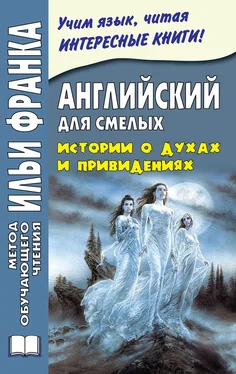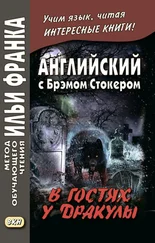
 The books there are arranged as he arranged and ticketed them. Little slips of paper, sometimes bearing interesting fragments of writing, still mark his places. His marginal comments still give life to pages from which all other interest has faded, and he would have but a dull imagination who could sit in the chamber amidst these books without ever being carried back 180 years into the past, to the time when the newest of them left the printer’s hands.
The books there are arranged as he arranged and ticketed them. Little slips of paper, sometimes bearing interesting fragments of writing, still mark his places. His marginal comments still give life to pages from which all other interest has faded, and he would have but a dull imagination who could sit in the chamber amidst these books without ever being carried back 180 years into the past, to the time when the newest of them left the printer’s hands.
Of those into whose possession the books have come, some have doubtless loved them more, and some less; some, perhaps, have left them severely alone. But neither those who loved them, nor those who loved them not, have lost them, and they passed, some century and a half after William Whitehead’s death, into the hands of Mr Batchel, who loved them as a father loves his children. He lived alone, and had few domestic cares to distract his mind. He was able, therefore, to enjoy to the full what Vicar Whitehead had enjoyed so long before him. During many a long summer evening would he sit poring over long-forgotten books; and since the chamber, otherwise called the library, faced the south, he could also spend sunny winter mornings there without discomfort. Writing at a small table, or reading as he stood at a tall desk, he would browse amongst the books like an ox in a pleasant pasture.
There were other times also, at which Mr Batchel would use the books(книгами мистер Бэтчел пользовался и в еще одно время суток: «были и другие времена также, в которые мистер Бэтчел обычно пользовался книгами»; would – служебный глагол, выражающий привычное действие, относящееся к прошедшему ) . Not being a sound sleeper(поскольку спал он некрепко: «не будучи тем, кто крепко спит»; sound – здоровый, крепкий, глубокий / о сне / ; sleeper – спящий; тот, кто спит ) (for book-loving men seldom are(любители книг редко крепко спят: «так как любящие книги люди редко являются /таковыми/») ), he elected to use as a bedroom one of the two chambers which opened at either side into the library(он избрал в качестве спальни одну из двух комнат, с двух сторон примыкавших к библиотеке: «которые выходили с каждой стороны в библиотеку»; to use – использовать, пользоваться ) . The arrangement enabled him to beguile many a sleepless hour amongst the books(обосновавшись таким образом, он мог проводить за книгами многие бессонные часы; arrangement – приведение в порядок; расположение; обустройство; to enable – давать возможность, делать возможным; to beguile – приятно проводить время ) , and in view of these nocturnal visits he kept a candle standing in a sconce above the desk, and matches always ready to his hand(и ввиду этих ночных визитов он держал на столе свечку в подсвечнике: «свечку, стоявшую в подсвечнике над столом», а спички всегда были у него под рукой; sconce – подсвечник, канделябр; ready – готовый, имеющийся наготове, под рукой ).
There was one disadvantage in this close proximity of his bed to the library(был один недостаток в таком близком соседстве его кровати с библиотекой) . Owing, apparently, to some defect in the fittings of the room(из-за какого-то, видимо, дефекта, допущенного при установке окон или дверей в этой комнате; owing to – из-за, вследствие; fittings – арматура ) , which, having no mechanical tastes, Mr Batchel had never investigated(в который, не будучи механического склада ума, мистер Бэтчел никогда не вдавался: «который, не имея механических представлений = представления о механике , мистер Бэтчел никогда не исследовал»; taste – вкус; представление, первое знакомство; понимание ) , there could be heard, in the stillness of the night, exactly such sounds as might arise from a person moving about amongst the books(в тишине ночи порой были слышны в точности такие звуки, какие мог бы издавать человек, бродивший среди книг; to arise – происходить; раздаваться / о шуме / ; to move – двигаться, передвигаться, перемещаться; about – / нареч. / кругом; повсюду, взад-вперед ) . Visitors using the other adjacent room would often remark at breakfast, that they had heard their host in the library at one or two o’clock in the morning(гости, которые останавливались в другой смежной комнате, часто замечали за завтраком, что они слышали, как их хозяин ходил в библиотеке в час или в два ночи: «утра»; to use – использовать, пользоваться ) , when, in fact, he had not left his bed(когда он на самом деле не покидал постели) . Invariably Mr Batchel allowed them to suppose that he had been where they thought him(неизменно мистер Бэтчел позволял им думать, что он был там, где они считали) . He disliked idle controversy(ему не нравились праздные споры) , and was unwilling to afford an opening for supernatural talk(и он не хотел давать повод для разговоров о сверхъестественном; to afford – давать, позволять; opening – открывание, раскрывание; удобный случай, благоприятная возможность ) . Knowing well enough the sounds by which his guests had been deceived(достаточно хорошо зная те звуки, что обманывали его гостей: «которыми его гости были обмануты») , he wanted no other explanation of them than his own(он не хотел другого их объяснения, кроме своего собственного) , though it was of too vague a character to count as an explanation(хотя оно было слишком туманного характера, чтобы считаться объяснением; to count – вычислять, подсчитывать; считать/ся/ ) . He conjectured that the window-sashes, or the doors, or ‘something’, were defective(он полагал, что, то ли в оконных переплетах, то ли в дверях, то ли где еще был дефект; something – что-то; defective – имеющий недостатки, дефектный ) , and was too phlegmatic and too unpractical to make any investigation(и был слишком флегматичен и непрактичен, чтобы вдаваться в поиски причин: «чтобы проводить исследование») . The matter gave him no concern(это его не беспокоило: «этот вопрос не был для него источником беспокойства»; to give – зд.: быть источником, производить, вызывать; concern – отношение, касательство; забота, беспокойство ).
Читать дальше
Конец ознакомительного отрывка
Купить книгу


 The books there are arranged as he arranged and ticketed them. Little slips of paper, sometimes bearing interesting fragments of writing, still mark his places. His marginal comments still give life to pages from which all other interest has faded, and he would have but a dull imagination who could sit in the chamber amidst these books without ever being carried back 180 years into the past, to the time when the newest of them left the printer’s hands.
The books there are arranged as he arranged and ticketed them. Little slips of paper, sometimes bearing interesting fragments of writing, still mark his places. His marginal comments still give life to pages from which all other interest has faded, and he would have but a dull imagination who could sit in the chamber amidst these books without ever being carried back 180 years into the past, to the time when the newest of them left the printer’s hands.









